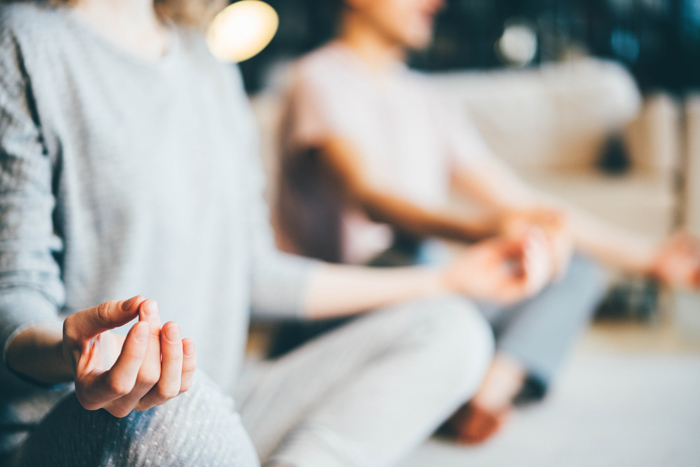Even if you haven’t been diagnosed with anxiety disorder, it’s normal to feel anxious when faced with challenges in life, unexpected twists and turns, or events over which you have little control. Many individuals are experiencing such anxiety during coronavirus.
Controlling What You Can
What’s important to remember is you do have control over how you manage stress. Knowing when to use various coping methods will help you reduce anxiety and regain a sense of calm. You’ll still have to weather the proverbial storm, but with the advantage of better awareness and acceptance of your emotions, the journey will be easier.
What Is Anxiety?
The majority of us have anxiety about something at one time or another. Trouble at work, problems with family dynamics, financial concerns, feeling nervous before a job interview or flying, health issues, or worry about circumstances in the community, nation, or world are just a few issues that make us feel anxious. If you or a loved one recently entered or left an inpatient rehabilitation treatment facility for help with drug or alcohol abuse, there were probably moments of anxiety during that transition as well.
Mental health professionals at the Canadian Mental Health Association define occasional anxiety as “a normal reaction…one of our internal warning systems that alerts us to danger or other threats and prepares our bodies to fight back or get out—the ‘flight or fight’ response.”
There may be nothing at all to actually fear, but the amygdala—a part of the brain that processes emotions—is flashing the lights and sounding the siren anyway, because it’s responsible for developing memories and recalling them as responses to threats. Feeling anxious about various situations like the ones mentioned above is just one facet of the human condition.
The difference between occasional anxiety and an anxiety disorder is the extent and duration of worry and concern. According to the National Institute of Mental Health, if someone is frequently anxious about numerous aspects of life; if this preoccupation causes “significant problems in areas of their life, such as social interactions, work, and school”; and if the anxiousness occurs most days for longer than six months, it’s likely they have anxiety disorder. There are many effective treatments for anxiety disorders.
Symptoms of Anxiety
How do you know if you’re feeling anxious about something? Are you experiencing increased anxiety during coronavirus? Not everyone presents worry or concern the same way. For example, some people may sleep a lot when anxious, while others feel angrier about even the slightest thing that normally wouldn’t bother them.
Individual behaviors might be different, but key physiological and emotional responses are often the same. Here are some of the general signs of anxiety:
- Rapid breathing
- Increased sweating
- Trembling or twitching muscles
- Increased heart rate
- Feeling tense, restless, or nervous
- Fatigue or general lethargy
- Insomnia or oversleeping
- Heightened irritation or anger
- Feelings of dread or panic
- Digestive issues
- Trouble thinking about anything else but the concern you have
Other symptoms of anxiety are more intense, especially if you’ve experienced past trauma.
Ways to Manage Occasional Anxiety
It’s not always necessary to take medication for anxiety—it depends on your condition. If your emotions are more negative than not and have been for a long time, it’s best to seek help with a qualified mental health expert to determine if you have an anxiety disorder, depression, or some other mood disorder that requires specialized treatment.
When life just feels like a bit too much sometimes, there are other ways to reduce stress and minimize a period of anxiousness. Here are some options:
- Holistic techniques such as focused breathing, visualization exercises, progressive muscle relaxation, and aromatherapy are beneficial because they help your central nervous system find balance between “fight or flight” and “rest and digest.”
- Regular exercise amps up natural feel-good chemicals in the brain such as dopamine, endorphins, and serotonin. These provide a boost to your nervous system as well and promote calm.
- A whole-foods diet, free from processed foods and excess fat and sugar, is medically proven to reduce anxiety.
- Moments of focused stillness, such as during mindful meditation, helps the mind “disconnect from the stress center.”
- Choosing to be grateful is a wonderful balm for what troubles your mind. It’s not that you don’t have cause for concern, but redirection from the core of your problem to who and what you’re thankful for provides healthy changes in your mind and spirit.
- Online support groups offer a quick connection to people who might feel as you do and can provide an outlet for some of your concerns.
- Spiritual guidance is also a way some people find a sense of grounding and release of what’s troubling them.
- Proper sleep hygiene is also necessary to relieve anxious feelings. A good routine should include a set schedule, an approximate seven–to–nine hours of sleep each night, and no blue screens—including TVs, phones, and tablets—an hour before bedtime.
- Take a “news fast” so you’re not consumed by the events of each day. Periodic breaks from the media–including social media–can promote calm and a more positive outlook.
It’s also important to know that life will always ebb and flow, but you don’t need to be washed away by your emotions. Use these techniques to maintain a sense of equilibrium and reduce anxiety during coronavirus.
Ask the Willingway Family for Help
At our continuing care community groups throughout the Southeast, you’ll meet other people taking life one day at a time. Help and support are always available if you need it.

